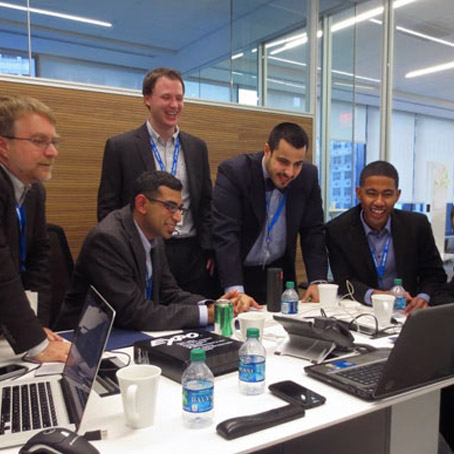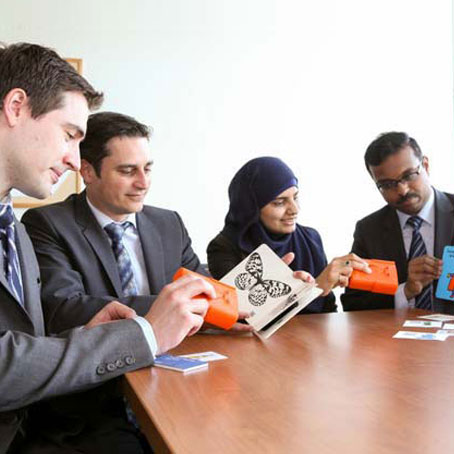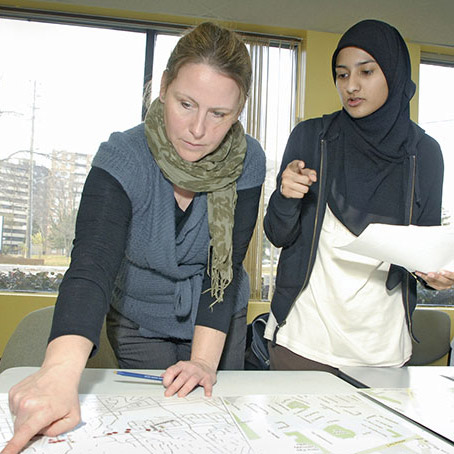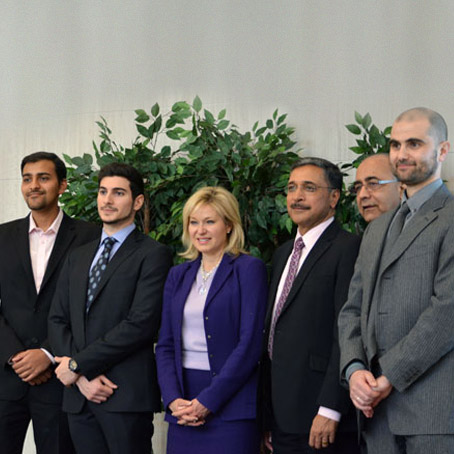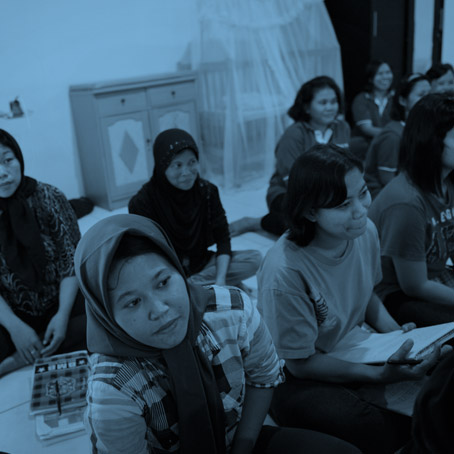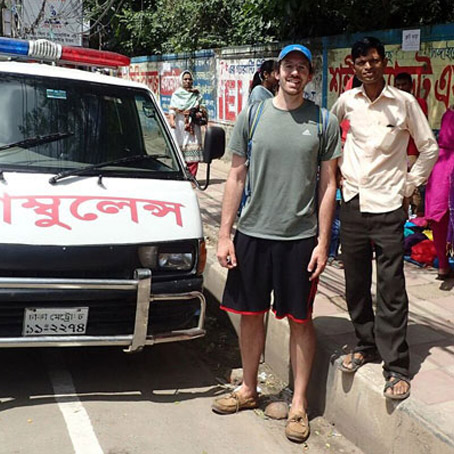1. Reimagining undergraduate education
U of T seeks to lead the way in re-imagining and reinventing undergraduate education at research-intensive universities. We recognize the importance of involving our students in world-class research and providing opportunities for entrepreneurial activities and, in turn, offer a variety of curricular and co-curricular opportunities to enable students to participate in research and entrepreneurship.
Research opportunities nurture curiosity, analysis, synthesis and disciplinary and interdisciplinary knowledge in our undergraduate students, while simultaneously enabling them to develop valuable skills and competencies and providing them with an experience that allows them to make informed decisions about pursuing careers in research. They learn to reason independently, challenge conventional wisdom, unearth new avenues of inquiry, and follow a chosen line of questioning to a successful conclusion – essential abilities for all of their future endeavours. U of T’s research excellence also means that it is able to offer students unique opportunities such as access to IBM’s Watson technology, which has been incorporated into an undergraduate course in computer science (for more on this see story below).
During 2015 we reviewed 314 student-initiated projects (SIPs) and course templates (CTs) through the Delegated Ethics Review Committee (DERC) process
In addition to valuable course-based research opportunities, U of T offers co-curricular opportunities for research funded through targeted Tri-Agency funding, the VPRI via NSERC Undergraduate Student Research Awards (USRA) and the University of Toronto Excellence Awards (UTEA), and direct funding by faculty members. In 2015, we began working with the Vice-Provost, Innovations in Undergraduate Education, on two initiatives so that students can more easily find and apply to research opportunities made available by faculty members: an online portal that helps students discover research and innovation opportunities with our researchers, and enabling the tagging of courses with a research component in the new ACORN student information service.
The VPRI also supports the ethics review and animal and human protocol processes for course-based and co-curricular research projects to ensure that such projects are designed and conducted with integrity.
And U of T continues to expand support for entrepreneurial opportunities for interested students, through the coordinating activities of the Banting & Best Centre for Innovation & Entrepreneurship.
Meet some of our student researchers and innovators
2. Leveraging our urban location
U of T has the privilege of being situated in the middle of the bustling, dynamic metropolis of Toronto, and we must take maximum “advantage of our location in one of the world’s most vibrant, culturally diverse and economically dynamic regions, for the benefit of both the University and the residents of the Greater Toronto Area.” As highlighted in our Urban Innovation Catalogue, urban-focused research at U of T spans many different disciplines and areas of study, cross-pollinating ideas in order to more effectively solve a myriad of multifaceted urban issues.
Equally important, our urban location has greatly facilitated the establishment of operations such as MaRS, JLABS and other innovation and entrepreneurial platforms that support the development, transfer, and commercialization of our ground-breaking research, generating positive socio-economic impacts for our region.
3. International impact
U of T has established and continues to nourish strong research partnerships with leading peer institutions around the world, and our researchers collaborate extensively with their peers at those institutions. Approximately 50% of papers published by our researchers are joint efforts with peers at institutions outside of Canada.
We aim to leverage our existing (and new) relationships to create even more opportunities for our faculty and students to take advantage of our international connections for the mutual benefit of the University and its global partners.
Please explore the map below. The crosses link to examples of international partnerships that engage U of T researchers.
South America
U of T undergrads off to Brazil to research poverty
Brazil researchers to join U of T, Oxford scholars in open-source scientific research
India – IC-IMPACTS
Asia
Designing across cultures: Engineering undergrads in China
Alumni startup Nanoleaf creating green jobs in Toronto, China
Citizen Lab researchers find privacy problems in popular Baidu browser
Indebted dragon: Lynette Ong explains China’s construction economy
Low- and middle-income countries
In addition to individual research collaborations, we have consolidated major institutional initiatives that provide a formal framework for research and innovation activities with other countries.
“Access to safe water is a significant issue around the world,” says University of Toronto electrical engineering professor Stewart Aitchison, one of the founders of IC-IMPACTS. “This is an excellent opportunity for Canadian and Indian researchers to partner on projects that will develop new solutions to ensure access to safe and clean water for communities in both countries.”
 For example: U of T is a founding member of the India-Canada Centre for Innovative Multidisciplinary Partnerships to Accelerate Community Transformation and Sustainability (IC-IMPACTS), a funding organization that supports research collaborations between Canada and India, focusing on three themes − integrated water management, safe and sustainable infrastructure, and public health − that affect both Canada and India.
For example: U of T is a founding member of the India-Canada Centre for Innovative Multidisciplinary Partnerships to Accelerate Community Transformation and Sustainability (IC-IMPACTS), a funding organization that supports research collaborations between Canada and India, focusing on three themes − integrated water management, safe and sustainable infrastructure, and public health − that affect both Canada and India.
The program aims to advance research and enable knowledge transfer in and between both countries, for the betterment of both nations’ communities. Principal among its animating goals are:
- to demonstrate technologies,
- to give Canadian companies the opportunity to commercially develop those technologies, and
- to stimulate trade between the two nations.
IC-IMPACTS’ engagement with Indian partners, showed a noteworthy increase in 2015, both in governmental and private sectors. U of T researchers working with counterparts at various Indian institutions – such as IIT Roorkee – initiated five projects related to infrastructure and water.

